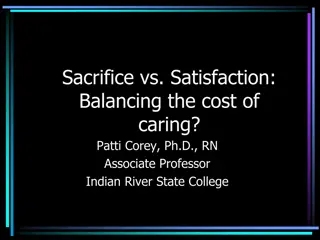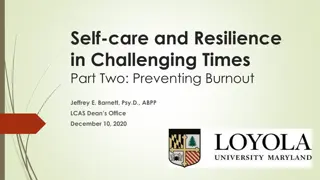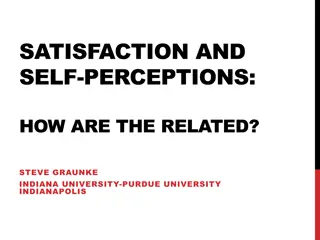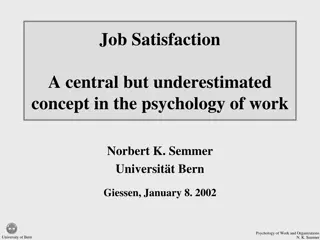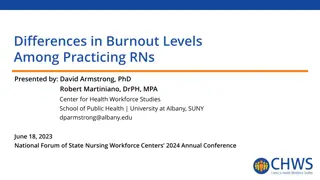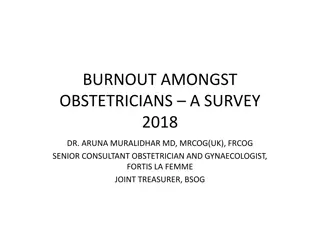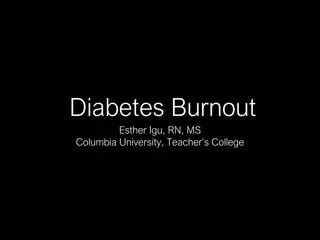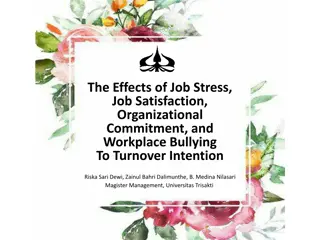Perceptions Affecting Job Satisfaction and Burnout Among Medical Assistants
Medical Assistants' perceptions of influences on job satisfaction and burnout were explored through a qualitative study. Findings revealed that factors such as heavy workload, lack of recognition, and low pay contribute to job burnout, while support, learning opportunities, and patient interactions positively impact job satisfaction.
Download Presentation

Please find below an Image/Link to download the presentation.
The content on the website is provided AS IS for your information and personal use only. It may not be sold, licensed, or shared on other websites without obtaining consent from the author. Download presentation by click this link. If you encounter any issues during the download, it is possible that the publisher has removed the file from their server.
E N D
Presentation Transcript
Medical Assistant Perceptions of Influences on Job Satisfaction and Job Burnout Tristen Hall, MPH University of Colorado Department of Family Medicine
The Research Question What are medical assistants (MAs) perceptions of factors that influence their employee outcomes, such as job burnout and job satisfaction?
Research Design and Method Study Design: Qualitative phase of exploratory sequential mixed methods study Data Collection Method: In-person focus groups (before March 2020) and individual interviews by Zoom or phone Analysis Method: Qualitative analysis grounded editing approach
What the Research Found Influences on job satisfaction and burnout, according to MAs: Heavy workload from added responsibilities, staffing levelsleads to burnout, other negative feelings I think the job burnout is largely they keep adding things for us to do. It's, Oh, it only takes one or three or five or ten more clicks. And it's like OK, but that's with 26 patients a day. Lack of recognition from practice leadership and general public hinders job satisfaction Sometimes you do feel with the work overload that you have in one day that you that you're just so tired. And you just don't feel like you get the same respect as somebody else.
What the Research Found Influences on job satisfaction and burnout, according to MAs: Low pay is inadequate for workload, reflects lack of recognition We get paid very low. I have a daughter in law that works in the grocery store and she gets paid more than I do. So that's painful because I went to school. I got a degree and we also work so hard, we're on our feet. I average about 10,000 steps a day up and down the halls and the pay just doesn't compensate. Work support, both tangible and emotional, from leadership, clinicians, and other MAs can alleviate burnout, promote satisfaction I think it's just balance, it's taking the load off of the people that you consciously know are doing just a little bit more with their providers and pick up longer hours or do more things that way. I think that is the biggest help.
What the Research Found Influences on job satisfaction and burnout, according to MAs: Other positive influences : Helping and getting to know patients Learning from the job High levels of responsibility and job variety
What this means for Clinical Practice Primary care practices can promote job satisfaction and prevent burnout for MAs in the following ways: Ensure pay is competitive for market Institute pay scales that reward taking on additional tasks or education Foster a work environment that encourages social support and sharing workloads Balance increasing workloads with variety in the work that MAs perform Supporting MAs in these ways may help with retention










